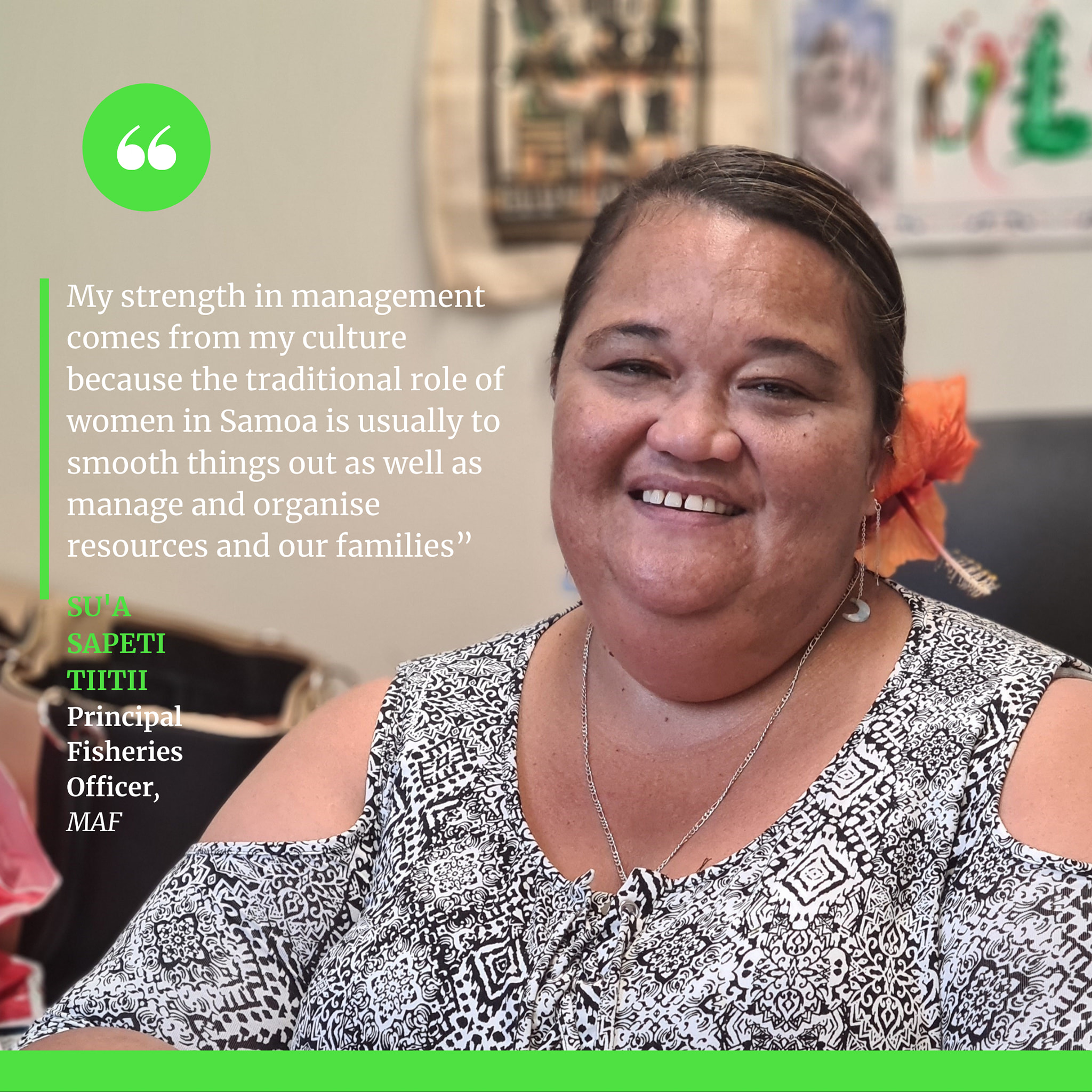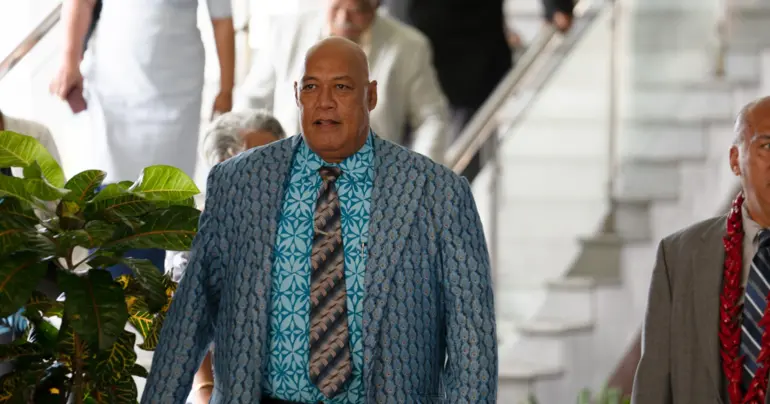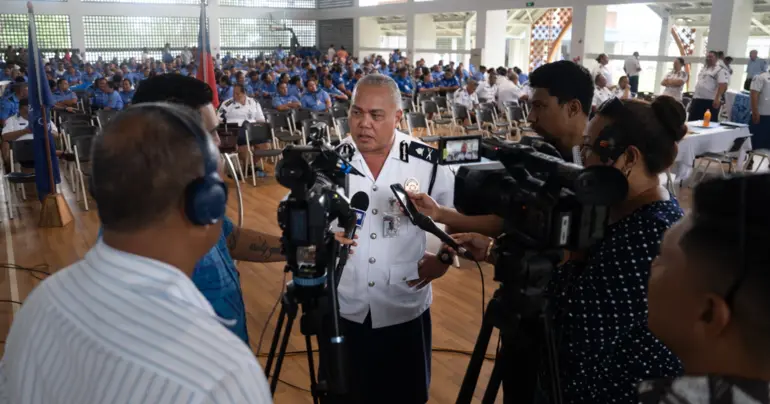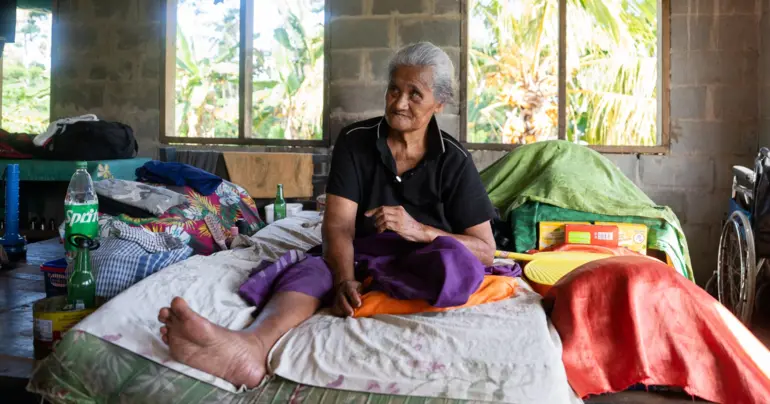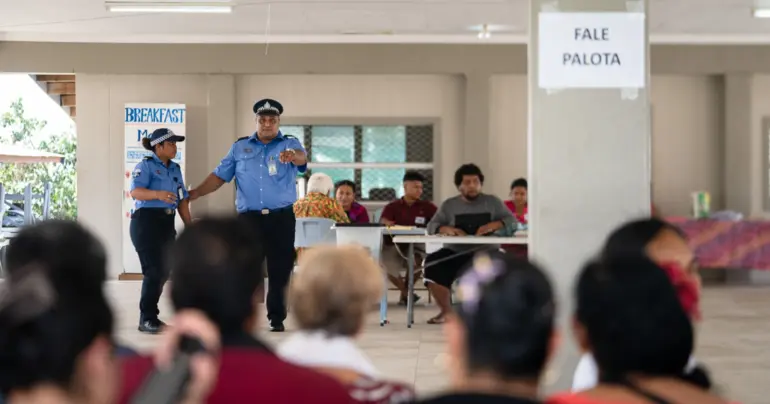Ministry of Agriculture and Fisheries celebrates women
The Ministry of Fisheries and Agriculture (M.A.F.) is celebrating Samoa's professional women with a social media showcase launched Monday on International Women’s Day.
M.A.F.’s Principal Fisheries Officer Su’a Sapeti Tiitii kicked off the Facebook series by sharing her experiences of choosing to enter a male-dominated field.
When Su’a first entered the Fisheries division fresh from graduating with a Diploma in Environment Resources Management from New Zealand in 2000, the first thing she noticed about her work environment was, she was the only female in the office yet she knew without a doubt – she belonged there.
“When I was first placed in fisheries, my first impression was it was a male dominated environment but I thank God I got the chance to be placed there.
"The general perception about this field is it’s about fishing and fishing is regarded as work performed by men but our work in here is very far from that belief. For any job or work, there always needs to be a woman because we are natural managers and problem solvers," Su’a said.
The Ministry describes her as “an unstoppable trailblazer” who established her mark as a leader and role model for girls and women over a 20 year career, drawing her strength and style of leadership from the example of the women in her family and community.
“My strength in management roles comes from my culture because the traditional role of women in Samoa is usually to smooth things out as well as manage and organise resources and our families” said Su’a.
“As women in Samoa, we have our own type of fishing activities such as picking shell fish and harvesting the seaweed while the males have their own fishing methods and activities to carry out. So when it comes down to decision making and developing policies and strategies and management plans – we women have our voice too.”
She added: “Fisheries is a male dominated area and I remember when I first got the scholarship to Australia, the panel asked me how will I overcome being in a male dominated career. I responded ‘if you do you work well to the best of your ability and apply what you have learnt with confidence – no one will question you.”
M.A.F. states that “it’s important to acknowledge the critical contribution of women in agriculture science” because they bring a variety of experiences and views that can greatly benefit scientific research and development and society.
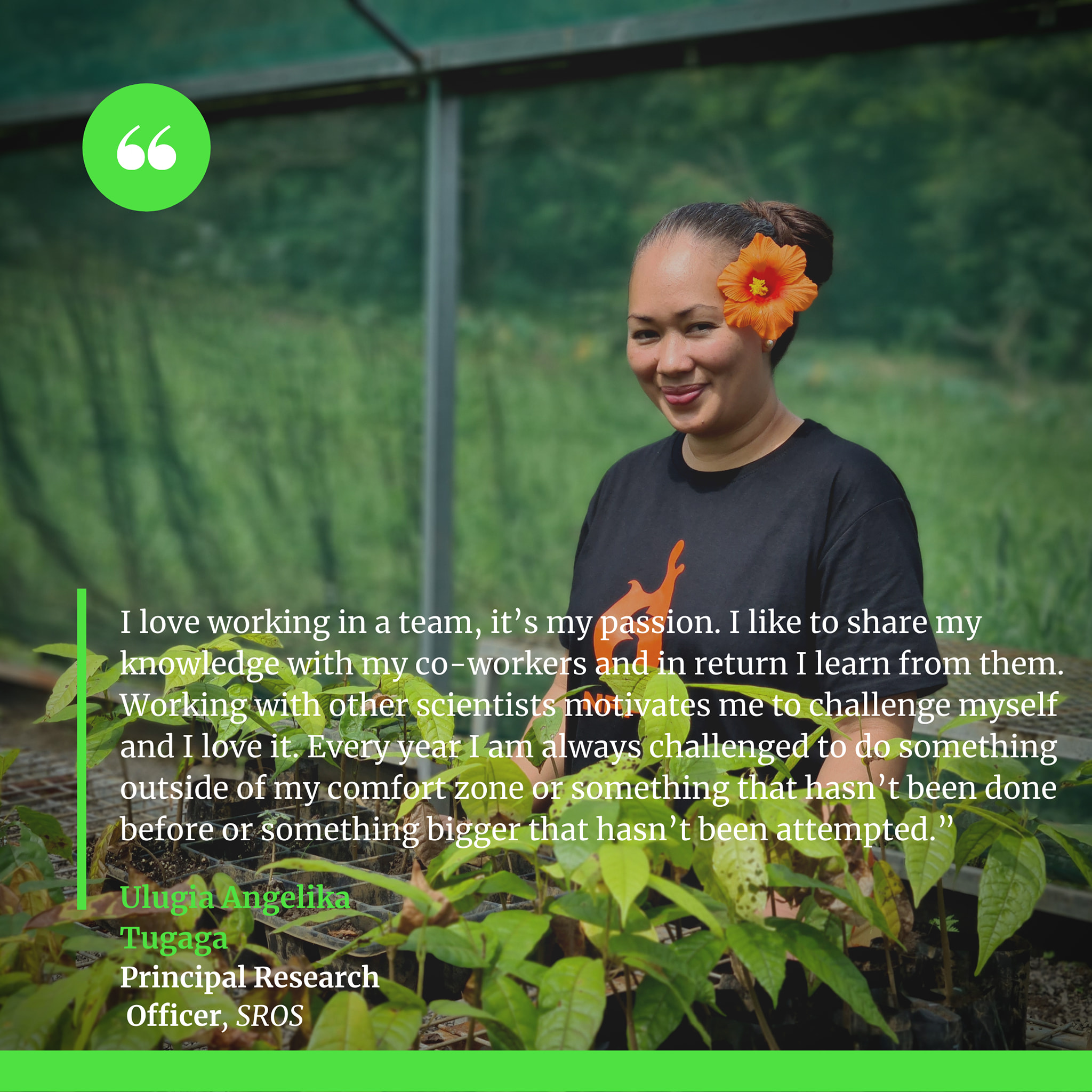
Ulugia Angelika Tugaga is the Principal Research officer in the Plant and Postharvest Division at the Scientific Research Organisation of Samoa (S.R.O.S.), earned a Bachelor in Agriculture at the University of the South Pacific in 2005, before starting her career at the M.A.F. Crops Unit in 2006.
“My passion for this area developed while studying my Bachelor in Agriculture at USP, it fascinates me to learn about insects and diseases. While learning how to use a microscope, I found I was very good at putting together specimens and using fine tools,” said Ulugia.
“It led me to think about what area under Agriculture science I wanted to specialise in and perhaps I should pursue what I’m good at. Working in pathology I found that I learned very quickly and could easily identify between a bacteria or fungi just by looking at a specimen. Eventually it came to the point where I wanted to learn this area more deeply.”
In the early stages of her career there was a lack of specialists in the field of pathology and agriculture but after she accomplished her Masters qualification, she became one of the first people to acquire it and remains one of the few experts in this area.
Currently Ulugia is working on a project that looks at responding to emerging pests and disease threats to horticulture in the Pacific Islands. Working alongside her colleagues from the former M.A.F. Crops Research who have recently been incorporated into S.R.O.S., has allowed for more knowledge sharing amongst scientists/researchers and created an environment that Ulugia thrives in.
“I love working in a team, it’s my passion. I like to share my knowledge with my co-workers and in return I learn from them. Working with other scientists motivates me to challenge myself and I love it.
"Every year I am always challenged to do something outside of my comfort zone or something that hasn’t been done before or something bigger that hasn’t been attempted,” she said.
Submitting scientific research for publishing is very important in Ulugia’s line of work which is a key way for authors to validate their work but in the wider scheme of things it creates novel solutions to complex problems through dialogue with fellow researchers.
“My greatest achievement has been being able to work with well-known scientists and collaborate on writing and publishing articles with them. That’s one of the steps to moving forward for a scientist at this level and because of that we have to be really involved in experiments in order to provide scientific data and move our research forward,“ Ulugia said.
“When we do research we have to make sure that we link with our farmers and stakeholders and be able to link them to the outside world. It’s our role as a scientist and it’s a big achievement for us to be able to do it. “
More women will be featured in the weeklong showcase.




